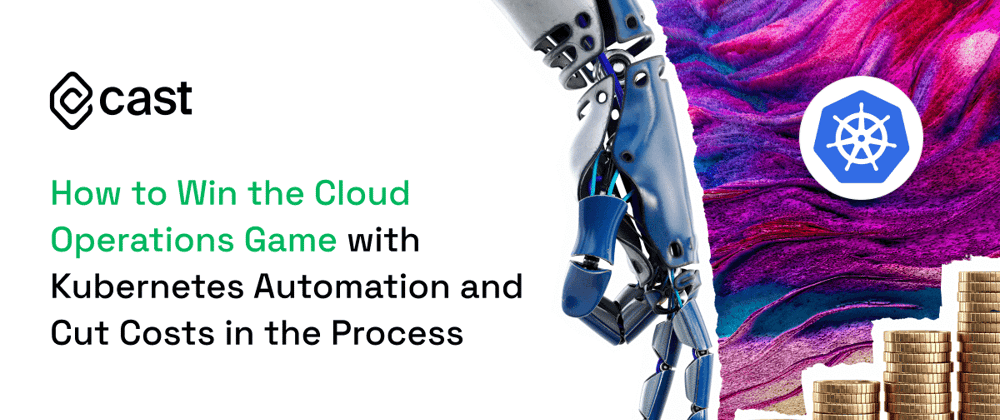If you feel that managing your cloud infrastructure got more complicated, you're not alone. Almost 50% of companies experience that.
When adding and removing apps becomes increasingly time-consuming and starts to impact your operational costs (and the happiness of your engineers!), it’s natural that you start wondering:
Is the cloud worth the effort?
Let me show you how to fix these issues and you’ll see that moving to the cloud was worth it after all.
You’re bound to encounter problems if any of these apply to you
Here are a few factors that make optimizing cloud operations a critical initiative:
- You use hybrid cloud or multi cloud infrastructures - these will come with their unique share of complexity, even if you feel in control right now. Better start acting now before it’s too late.
We were running on T type EC2 instances and scaling them a lot during our operation. At the beginning, we used AWS autoscalers and then added Azure into the mix. Keeping an eye on it all became difficult. Are we using the right instances for the right job? Do we have to create more node groups? Is something not working because we’ve run out of space? Answering all of these questions and applying fixes became a time-consuming issue for our team.
Alex Le Peltier, Head of Technology Operations at Delio
- Your teams are using various cloud services and spinning up resources ad hoc - the cloud’s scalability is a great advantage until teams start purchasing services and provisioning resources without any control. If you let this go on, cloud operations will have to deal with a melting pot of services that make no sense on the organizational scale.
- You migrated to the cloud with decoupled teams - if your teams operated independently of each other, they might have chosen different providers, security and governance solutions, or even management and monitoring technology stacks and approaches. Keeping all of them in this shape will cost you time and money. Also, you won’t be able to leverage infrastructure services like storage across your company.
Embrace and manage cloud complexity
Do you remember how clear the cloud was in the beginning? With time, more and more layers of new services and old dependencies have crept up to result in the complexity you’re facing now.
So, the cloud has become too complex for you to handle. At this point, you can choose between these two approaches:
- Hire more people and toss money at the problem,
- Learn how to manage the complexity.
The first doesn’t solve the root cause of cloud complexity. You’re hosing down forest fires instead of trying to stop the kid from playing with matches.
So, let’s say you pick the second approach.
What is cloud complexity management? Managing cloud complexity revolves around the relationships between all the different vendors, APIs, microservices, and solutions you use.
To make it work, you need one key ingredient: automation.
Give your cloud operations team a breather with automation
Using an abstraction layer paired with the least common denominator approach is a smart move. It frees teams from the complexity of dealing directly with cloud solutions and interfaces.
Use tools that let you manage the details in bulk or give you high-level management capabilities. Cloud management platforms or API management platforms are two good examples of this.
Make sure to pick a tool that isn’t a black box and still lets you understand what’s going on by providing logs or reports.
Automating cloud services can save lots of time for a cloud operations team.
Shifting to an out-of-the-box cloud setup that scales automatically reduces both the complexity and costs of the cloud.
An automation solution can provision resources to match the exact requirements of your application, scale them up and down in line with changing demands, and decommission them when you no longer need them.
See how automation works in practice
What difference can automation make in the life of a cloud operations team? Check out this case study - it shows how the rapidly growing fintech company Delio found a way to manage its cloud complexity and make its engineers more productive with an automation tool.
See how Delio simplified its Kubernetes management
By implementing CAST AI, Delio enjoys the benefits of a fully automated process that balances cost and performance, buying back their engineers' time to work on the product.
<!-- /wp:button -->
<!-- /wp:buttons -->
<!-- /wp:column -->
<!-- /wp:columns -->







Oldest comments (0)